I love to read. I find it helpful to summarize my thoughts on each book and I offer those thoughts in the hope that you will be encouraged to either read or pass over the given title.
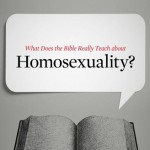 What Does the Bible Really Teach About Homosexuality? by Kevin DeYoung. If ever there was a book uniquely suited for the times it’s DeYoung’s latest. What Does the Bible . . . ? is after an admittedly small slice of the categorical pie, for DeYoung writes, “This is a Christian book, with a narrow focus, defending a traditional view of marriage” (15). The work’s utility lies in it’s simplicity: part one deals with the five most debated passage on homosexuality and part two deals with the seven most common objections to the traditional view. As we should expect by now DeYoung is winsomely logical, ruthlessly biblical, and pastorally helpful. Every pastor should get have multiple copies on hand to distribute to church members. We can’t seem to keep the book in stock at IDC and I continually hear of it being an immense help to our congregation. One of the must reads of 2015.
What Does the Bible Really Teach About Homosexuality? by Kevin DeYoung. If ever there was a book uniquely suited for the times it’s DeYoung’s latest. What Does the Bible . . . ? is after an admittedly small slice of the categorical pie, for DeYoung writes, “This is a Christian book, with a narrow focus, defending a traditional view of marriage” (15). The work’s utility lies in it’s simplicity: part one deals with the five most debated passage on homosexuality and part two deals with the seven most common objections to the traditional view. As we should expect by now DeYoung is winsomely logical, ruthlessly biblical, and pastorally helpful. Every pastor should get have multiple copies on hand to distribute to church members. We can’t seem to keep the book in stock at IDC and I continually hear of it being an immense help to our congregation. One of the must reads of 2015.
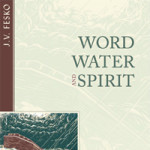 Water, Word, and Spirit: A Reformed Perspective on Baptism by J.V Fesko. The appropriate word for Fesko’s volume on baptism is “tome.” It’s an immense work of scholarship spanning the disciplines of historical, biblical, and systematic theology. The immensity is matched by a density of language; this is really an academic monograph on the subject. Fesko is strongest in the section on biblical theology as he highlights the reality of baptism being covenant and eschatological judgment—these are often neglected in my baptist circles. He also usefully points out how often baptism in Scripture is connected to the Noahic flood. Of particular importance is chapter 14, “Baptism and Its Recipients,” as Fesko goes full throttle to convince readers of paedobaptism’s rightness. I’m still not convinced, but if you want to understand the historic “Reformed perspective” this is the book for you.
Water, Word, and Spirit: A Reformed Perspective on Baptism by J.V Fesko. The appropriate word for Fesko’s volume on baptism is “tome.” It’s an immense work of scholarship spanning the disciplines of historical, biblical, and systematic theology. The immensity is matched by a density of language; this is really an academic monograph on the subject. Fesko is strongest in the section on biblical theology as he highlights the reality of baptism being covenant and eschatological judgment—these are often neglected in my baptist circles. He also usefully points out how often baptism in Scripture is connected to the Noahic flood. Of particular importance is chapter 14, “Baptism and Its Recipients,” as Fesko goes full throttle to convince readers of paedobaptism’s rightness. I’m still not convinced, but if you want to understand the historic “Reformed perspective” this is the book for you.
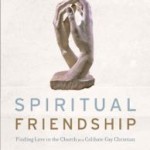 Spiritual Friendship: Finding Love as a Celibate Gay Christian by Wesley Hill. Back in May I sat in a doctoral seminar entitled “Patristic & Celtic Spirituality” and heard Dr. Michael Haykin say something like, “Wesley Hill’s book Spiritual Friendship is teaching me things about friendship I’ve never seen before—and I’ve been studying the topic for years!” I immediately ordered the book and finally got around to reading it this week. Although I’m not convinced of Hill’s apparent desire to resurrect “vowed friendship” is a wise move (Allberry’s spot on in this review), I found myself continually rethinking my own views of friendship. Part 1, “Reading Friendship,” is illuminating in every way as Hill traces the decline of friendship in the Western world over the last few centuries. Part 2 is less helpful, for me at least, because it more acutely applies to those struggling with same-sex attraction. Nonetheless, I think anyone’s understanding and practice of spiritual friendship will be improved by this book.
Spiritual Friendship: Finding Love as a Celibate Gay Christian by Wesley Hill. Back in May I sat in a doctoral seminar entitled “Patristic & Celtic Spirituality” and heard Dr. Michael Haykin say something like, “Wesley Hill’s book Spiritual Friendship is teaching me things about friendship I’ve never seen before—and I’ve been studying the topic for years!” I immediately ordered the book and finally got around to reading it this week. Although I’m not convinced of Hill’s apparent desire to resurrect “vowed friendship” is a wise move (Allberry’s spot on in this review), I found myself continually rethinking my own views of friendship. Part 1, “Reading Friendship,” is illuminating in every way as Hill traces the decline of friendship in the Western world over the last few centuries. Part 2 is less helpful, for me at least, because it more acutely applies to those struggling with same-sex attraction. Nonetheless, I think anyone’s understanding and practice of spiritual friendship will be improved by this book.
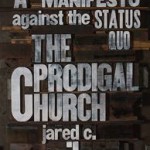 The Prodigal Church: A Gentle Manifesto Against the Status Quo by Jared Wilson. Wilson says he doesn’t want The Prodigal Church to be a rant, an argument for a traditional church, or reactionary rejection. Rather it’s a “gentle manifesto” in which he dares attractional church aficionados to ask, “What if what we’re doing isn’t really what we’re supposed to be doing?” By “attractional” he means “a way of doing ministry that derives from the primary purpose of making Christianity appealing” (25). Although I think the overwhelming majority of readers won’t actually be attractional apologists (I imagine he’ll be mostly preaching to the choir), this book does achieve its stated aims. With gentility and honesty Wilson pokes at the sacred cows of attractional churches to see if they can stand withstand the light of Scripture and reason. If you know a pastor withering at an attractional church or wondering if the model is actually misguided, give them this book. They will be helped.
The Prodigal Church: A Gentle Manifesto Against the Status Quo by Jared Wilson. Wilson says he doesn’t want The Prodigal Church to be a rant, an argument for a traditional church, or reactionary rejection. Rather it’s a “gentle manifesto” in which he dares attractional church aficionados to ask, “What if what we’re doing isn’t really what we’re supposed to be doing?” By “attractional” he means “a way of doing ministry that derives from the primary purpose of making Christianity appealing” (25). Although I think the overwhelming majority of readers won’t actually be attractional apologists (I imagine he’ll be mostly preaching to the choir), this book does achieve its stated aims. With gentility and honesty Wilson pokes at the sacred cows of attractional churches to see if they can stand withstand the light of Scripture and reason. If you know a pastor withering at an attractional church or wondering if the model is actually misguided, give them this book. They will be helped.
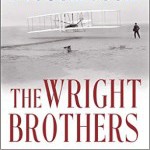 The Wright Brothers by David McCullough. There isn’t anyone from whom I’d rather learn about American history than David McCullough. The two-time Pulitzer winner writes with such a warmth and familiarity of understanding I feel as though I’m listening to my grandfather tells stories of days gone by. His latest work focuses on how Wilbur and Orville Wright created their “flying machine.” This story of the boys from Dayton, Ohio is quintessentially “American”—two men rising from obscurity to change the world through undaunted industry and ingenuity. The Wright Brothers is a story we all should know. And McCullough’s reverent and beautiful prose is the perfect guide. Highly recommended!
The Wright Brothers by David McCullough. There isn’t anyone from whom I’d rather learn about American history than David McCullough. The two-time Pulitzer winner writes with such a warmth and familiarity of understanding I feel as though I’m listening to my grandfather tells stories of days gone by. His latest work focuses on how Wilbur and Orville Wright created their “flying machine.” This story of the boys from Dayton, Ohio is quintessentially “American”—two men rising from obscurity to change the world through undaunted industry and ingenuity. The Wright Brothers is a story we all should know. And McCullough’s reverent and beautiful prose is the perfect guide. Highly recommended!
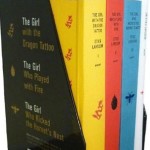 The Millennium Trilogy by Stieg Larsson. After almost seven months of nonstop PhD reading I permitted my mind a two-week break of relative mindlessness in terms of bedtime reading. For some reason—I’m still not exactly sure how—I grabbed Larsson’s international senstation The Millennium Triology (The Girl with the Dragon Tattoo, The Girl Who Played with Fire, and The Girl Who Kicked the Hornet’s Nest). Interestingly enough, Larsson was never able to bask in the success of his greatest success as Millennium was published after his death. Aside from a few brutal scenes and occasional reveling in innuendo the trilogy is taut, keep-you-up-too-late reading. I can definitely see why it’s such a smashing success.
The Millennium Trilogy by Stieg Larsson. After almost seven months of nonstop PhD reading I permitted my mind a two-week break of relative mindlessness in terms of bedtime reading. For some reason—I’m still not exactly sure how—I grabbed Larsson’s international senstation The Millennium Triology (The Girl with the Dragon Tattoo, The Girl Who Played with Fire, and The Girl Who Kicked the Hornet’s Nest). Interestingly enough, Larsson was never able to bask in the success of his greatest success as Millennium was published after his death. Aside from a few brutal scenes and occasional reveling in innuendo the trilogy is taut, keep-you-up-too-late reading. I can definitely see why it’s such a smashing success.
Click here to find other entries in the Recent Reads series.
